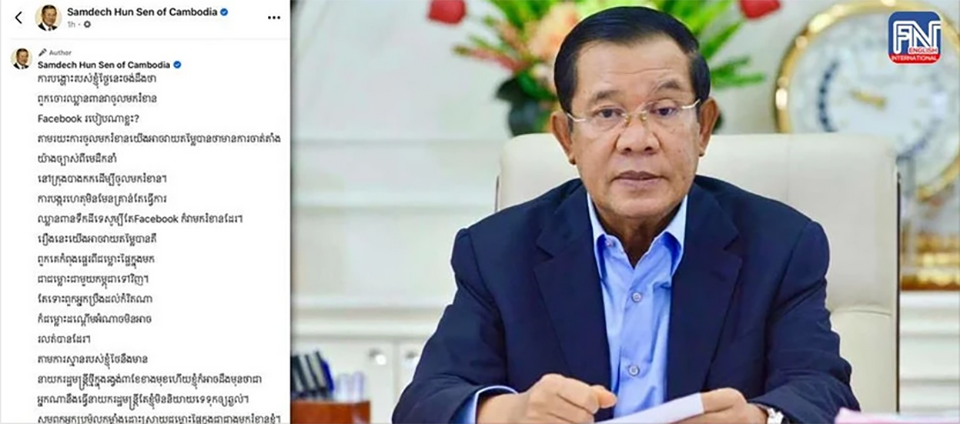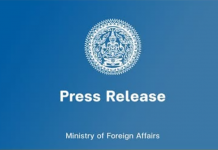
BANGKOK / PHNOM PENH – In a startling turn that adds a new layer of complexity to already strained Thai-Cambodian relations, former Cambodian Prime Minister Hun Sen took to Facebook to accuse Thailand of online interference—and to make a bold political prediction: Thailand will have a new prime minister within three months, and he claims to already know who it will be.
The statement, posted on June 24, was laced with both accusation and intrigue. Hun Sen alleged that Thai nationals had not only encroached upon Cambodian territory but also infiltrated and disrupted his personal social media page. He claimed these digital disturbances were not isolated, spontaneous actions, but rather the result of directives from senior Thai leadership.
“From this interference, we can evaluate that the leadership in Bangkok has issued clear orders that caused this disturbance,” Hun Sen wrote in Khmer. “This provocation is not only an invasion of land but also an intrusion into my Facebook account. It is an attempt to shift attention from their internal power struggle to confrontation with Cambodia.”
Hun Sen, who still wields enormous influence in Cambodia’s political landscape despite stepping down in favor of his son Hun Manet last year, then pivoted sharply to make a prediction that stunned regional observers.
“I predict Thailand will have a new prime minister within the next three months. I already know who it will be. But I won’t say. Let them figure it out,” he wrote cryptically.
Though he offered no further details, the post has ignited widespread speculation across political circles in both Thailand and Cambodia. With Thai Prime Minister facing ongoing questions about legitimacy, internal rifts within the ruling Pheu Thai Party, and pressure from powerful factions including the military and former prime ministers, the comments have fueled rumors of an impending leadership shakeup.
Border Tensions and Political Theater
Hun Sen’s post comes on the heels of minor but symbolically sensitive disputes along the Thai-Cambodian border, where villagers and officials have clashed over unclear demarcations and historical grievances. His reference to “Thai invaders” also appears to respond to ongoing online spats, including a surge of critical Thai comments on Cambodian public forums and Facebook pages.
Thai officials have so far refrained from issuing a formal response to Hun Sen’s post, though sources within the Ministry of Foreign Affairs privately expressed “surprise” at the tone and timing of the remarks.
“This seems like Hun Sen trying to remind everyone that he’s still in the room—even if he’s not technically the one at the table anymore,” a diplomatic analyst in Bangkok noted. “And he may be signaling that changes are already underway in Thai politics.”
A Leader Who Still Commands Attention
Despite stepping back from day-to-day governance, Hun Sen has maintained a strong presence online and in media commentary. His reputation for sharp political maneuvering, both domestically and abroad, means his words—particularly when directed at neighboring Thailand—carry weight.
While there is no concrete evidence of imminent change in Thailand’s executive leadership, Hun Sen’s confident assertion that he knows the successor’s identity will likely raise pressure on Thai political figures already fending off rumors of internal party challenges and constitutional complications.
In the meantime, the cryptic nature of his post has captivated the Thai political sphere.
“Who does Hun Sen think will be PM? That question will haunt dinner tables and newsrooms in Bangkok tonight,” quipped a senior political journalist.
Whether it was mere political theatre or a warning informed by inside intelligence, Hun Sen has once again inserted himself into the narrative—and turned the spotlight firmly onto Thailand’s uncertain political horizon.











